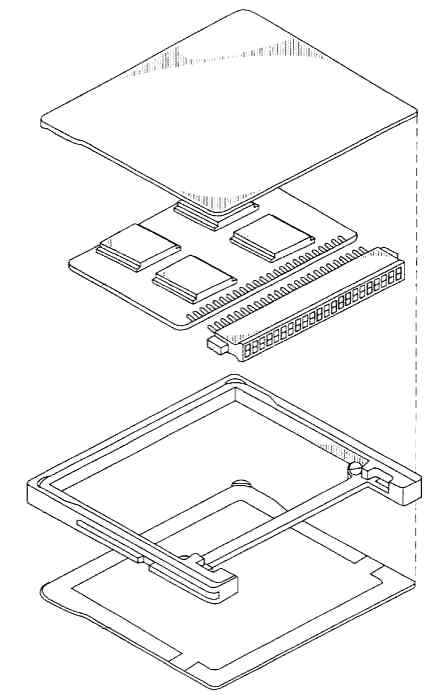Seagate patents Compact Flash - 10 years late!

Can "prior art" be too prior? Dramatic evidence of America's broken patent system surfaced in last week's lawsuit by Seagate against STEC, the innovative developer of high-performance flash drives. Imagine winning a patent for something invented 10 years before. Seagate may sue SANdisk next.
Seagate owns a patent on flash-based storage devices. The application was filed in 2000 by HP. Seagate later bought it.
Deja-vu - all over again Here is a drawing from patent 6404647. It's described as
. . . a perspective view of a mass memory storage device constructed in accordance with the principles of the present invention
Can't quite place it? Maybe this will jog your memory:
It is all there, even down to the guide rails. Who knew getting a patent could be so easy? Or that patent examiners could be so clueless?
I bought a $400 10 MB CF card in 1993 - so I know that they'd been invented by then.
Size matters Part of Seagate CEO William Watkins' pique with STEC is fueled by a suit from 3.5" drive inventor Rodime that Seagate paid $45 million to settle. Rodime patented the 3.5" form factor for disk drives - and got the courts to enforce it.
Watkins knows that patenting disk drive form factors is silly - they have to be standard sizes - but if the USPTO grants them and the courts enforce them, why not?
The Storage Bits take Solid-state drives with the form factor of disk drives long predate the HP's patent app. What do patent examiners use for research - Ouija boards?
The good news is that the Supreme Court has forced the patent courts to change course. In KSR v Teleflex the Supremes ruled that the non-obviousness is a legal question, not a factual one, which means that lower court findings can be appealed. Rodime would have lost under that rule. While it will take time for KSR to play out, in the short term it almost certainly reduces the value of existing patents - like Seagate's ludicrous flash drive patent.
I suspect that Seagate's real goal is to cross-license with STEC for their industry-leading flash translation layer and architecture. I hope STEC fights this and the rest of high-tech gets back to real invention instead of silly patent games.
Comments welcome, of course. What is your favorite bogus patent?
